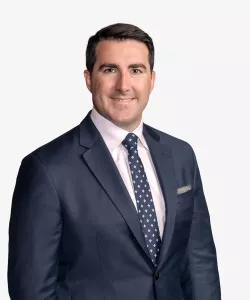HHS Announces Final Rules Amending Stark Law Regulations and Anti-Kickback Statute
Headlines that Matter for Companies and Executives in Regulated Industries
HHS Announces Final Rules Amending Stark Law Regulations and Anti-Kickback Statute
On November 20, 2020, the Centers for Medicare and Medicaid Services and the Department of Health and Human Services (HHS) published final rules that make significant changes to the Medicare physician self-referral law, called the Stark law, and anti-kickback rules. The Stark law, which has not undergone any significant updates in over two decades, prohibits physicians from referring patients to receive “designated health services” payable by Medicare or Medicaid from entities with which the physician or an immediate family member has a financial relationship unless an exception applies.
The latest update allows providers and other entities, such as medical device manufacturers, more flexibility to participate in value-based payment models and manage patient care in exchange for taking on risk. For example, under the new rule, a medical services provider could partner with a diabetes care company to give hospitalized diabetes patients free condition management devices and services post-discharge to prevent re-hospitalizations. The final rule also permits fee-for-service or value-based payment models that would allow, for example, hospitals to donate electronic health records or cybersecurity software to smaller facilities.
Changes to the anti-kickback rules include new safe harbors that are designed to protect arrangements entered into with or by a value-based enterprise (VBE), which are networks where the participants have agreed to collaborate for value-based purposes. These safe harbors include protection for in-kind remuneration exchanged between VBE participants, provided that the remuneration is used predominately to engage in value-based activities that are directly connected to care coordination for a target patient population.
The majority of the changes to the regulations will go into effect on January 19, 2021.
Despite these changes, we anticipate that government enforcement for violations of the Stark law, anti-kickback rules, as well as the False Claims Act to continue and even increase in the years to come. All healthcare regulated entities that receive federal funds should ensure that they understand and comply with these laws and the available safe harbors in an effort to avoid government enforcement. In the coming weeks, Arent Fox will be publishing a series of Client Alerts that provide in-depth analyses of key elements of both Rules.
The Anti-Kickback Statute Final Rule is here.
The Stark Statute Final Rule is here.
Purdue Pharma Pleads Guilty to Criminal Opioid Charges and Agrees to Pay Over $5 Billion
On November 24, Purdue Pharma’s CEO and Chairman Robert Miller entered guilty pleas on behalf of the company to an information charging it with conspiracy to defraud the United States and violate the Food, Drug, and Cosmetic Act and conspiracy to violate the Federal Anti-Kickback Statute.
As part of the guilty plea, Purdue admitted that it marketed opioid products to healthcare providers whom it had reason to know were diverting the drugs, and that it reported misleading information regarding compromised prescription data to the Drug Enforcement Administration in an effort to boost its manufacturing quotas. Purdue also admitted to making payments to two doctors to induce them to write more prescriptions of Purdue opioid products.
The plea agreement carries a criminal fine of over $3.5 billion and an additional $2 billion in criminal forfeiture, making it the largest penalty ever issued against a pharmaceutical manufacturer. These criminal penalties are in addition to civil penalties that provide the United States with a general unsecured bankruptcy claim for recovery of $2.8 billion to resolve Purdue Pharma’s liability under the False Claims Act.
A copy of the DOJ’s press release can be found here.
Former Executives of Biopharmaceutical Company Convicted in SDNY’s First COVID-19 Trial
Two former executives of MiMedx Group Inc., a seller of regenerative biologic products, were convicted by a Manhattan jury of securities fraud and conspiracy in the first trial held in the Southern District of New York since the onset of the COVID-19 pandemic.
The government alleged that former MiMedx CEO Parker Petit and former COO William Taylor fraudulently inflated the company’s value through corrupt financial inducements and secret agreements with four of MiMedx’s business partners. For example, Petit and Taylor were accused of causing MiMedx to recognize $4.6 million in revenue by booking revenue from a distributor even though they were aware that the distributor would not make timely payment for the product. To hide the fraudulent arrangement from auditors, Petit used a shell company to loan money to the distributor with the understanding that the loan proceeds would be used for paying down the distributor’s debt to MiMedx.
According to the charges, Petit and Taylor’s manipulation of MiMedx’s revenue caused the company to report materially inflated revenue to the Securities and Exchange Commission.
Petit’s and Taylor’s sentencing has been scheduled for February 23 and 24, respectively. Petit faces a maximum of 20 years imprisonment for his conviction for securities fraud, and Taylor faces a maximum of five years’ imprisonment for his conspiracy conviction.
On November 30, SDNY announced through a standing order that it would be cancelling all in-person proceedings until at least mid-January in response to the surge in COVID-19 cases throughout the region and across the country.
Contacts
- Related Industries
- Related Practices






